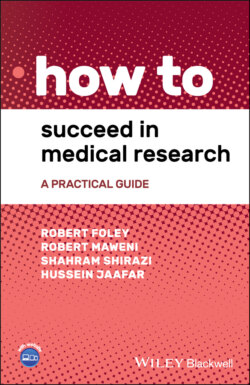Читать книгу How to Succeed in Medical Research - Robert Foley Andrew - Страница 15
Case Study 1.1 Letter to the editor [1]
ОглавлениеOne of my earliest mentors in research once commented that ‘we should all be writing more letters to the editor’. Although it still happens, the concept is much less common than it was previously. It is an excellent opportunity to sum up one's thoughts on an article, to offer an alternative point of view, to ask any pressing questions of the authors, or to disagree with their conclusions. Often a letter to the editor and a reply from the original author can make for very interesting debate. While I was reading on the topic of quality of life in patients with a specific type of brain tumour (an acoustic neuroma), I came across a recently published paper by Lodder and colleagues [2]. I had written a similar paper previously and had read a number of similar papers in the preceding months. I was struck by how the paper and the conclusion focused on the same topic as everyone else. The authors found that patients with an acoustic neuroma had a similar quality of life outcome, whether they underwent treatment with surgery, radiotherapy, or both. However, the authors also found that overall, the quality of life scores were low in all patients. Unfortunately, this was not addressed in the article. Many papers with similar findings merely compared quality of life outcomes with different treatments rather than focus on the big picture – which is, that quality of life outcomes in these patients are low. It was my feeling that doctors should be aware that all patients with this disease may have a low quality of life, and so we must try to identify problems in every patient. It felt to me that many authors were ignoring the elephant in the room, and so I wrote to the editor to explain this point of view. Because it was something I felt strongly about, it was fun and relatively easy to write the letter.
